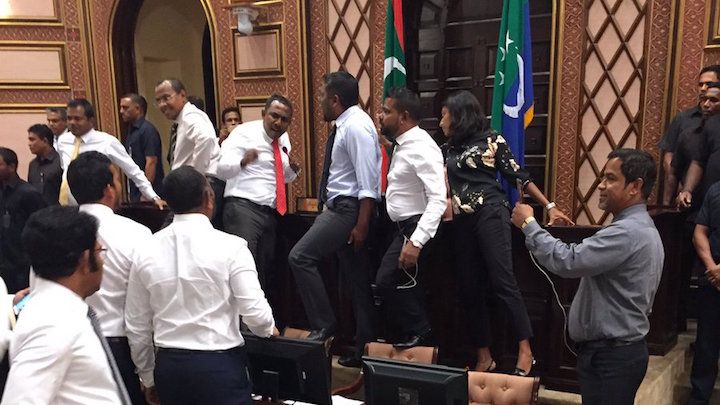No-confidence vote: roundup of reactions
The opposition alliance cried foul and western democracies expressed concern with “irregularities” but the government insisted that the vote was “free, fair, and transparent.”

01 Apr 2017, 09:00
A no-confidence motion against Speaker Abdulla Maseeh Mohamed was defeated on Monday in the first battle of a political showdown between President Abdulla Yameen and the newly united opposition.
After 13 opposition MPs were forcibly expelled from the chamber, 48 ruling coalition lawmakers stood up and said No to removing Maseeh in a roll call vote.
The opposition alliance cried foul and western democracies expressed concern with “irregularities” but the government insisted that the vote was “free, fair, and transparent.”
A day after the vote, the United States embassy released a statement expressing concern about “irregularities that impeded a free and fair vote in the Maldives Parliament on March 27.”
Become a member
Get full access to our archive and personalise your experience.
Already a member?
Discussion
No comments yet. Be the first to share your thoughts!
No comments yet. Be the first to join the conversation!
Join the Conversation
Sign in to share your thoughts under an alias and take part in the discussion. Independent journalism thrives on open, respectful debate — your voice matters.




